The best foods for healthy hair

Is your hair lank and lifeless and do your tresses need a treat? Forget expensive hair treatments and focus on what you put inside your body to get the very best from your barnet this winter.
We speak to dietitian, Dr Carrie Ruxton about the best foods to eat to make your hair thick, strong and shiny, whatever the weather:
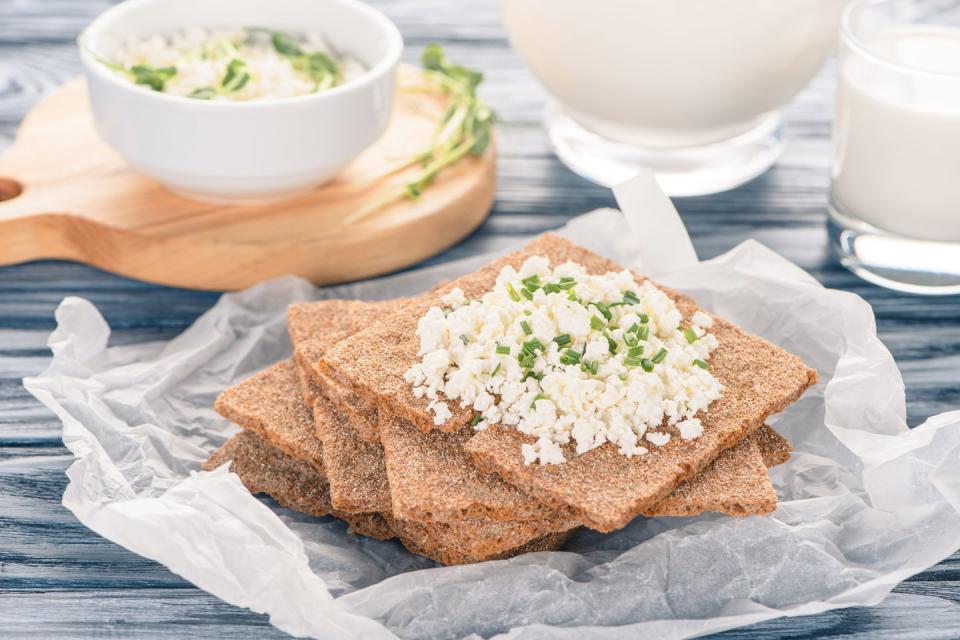
1. To help hair grow: dairy
Cottage cheese and yoghurt are great easy ways to get important proteins like casein and whey into your diet. As hair is made up mostly of proteins, this macronutrient is essential for both growth and strength.
'Dairy proteins are high biological value which means they contain all of the amino acids – protein building blocks – that the human body needs,' says Dr Ruxton.
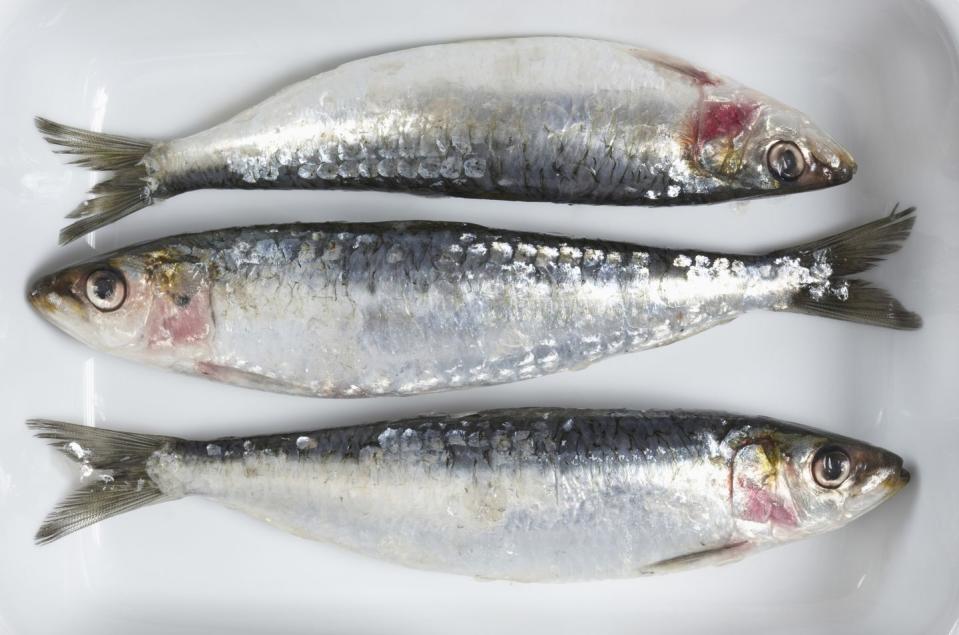
2. To combat hair loss: oily fish
The oily varieties (think salmon and mackerel) contain fatty acids like omega 3s, which can help to slow hair loss.
Fish also contains an impressive supply of iron and vitamin B12, which are essential for healthy hair (and skin, too): iron is stored in your hair follicles and used for numerous essential body processes – from making haemoglobin, the substance in red blood cells that transports oxygen, to supporting the immune system. And if the body is low on iron, these stores start to be used up by other cells and your hair suffers.
'Women and girls often lack iron and can improve absorption by having a glass of pure orange juice with the main meal of the day,' says Dr Ruxton.

3. To boost thickness: wholegrains
Wholegrains, from bread to cereals, contain zinc, B vitamins and iron. Zinc is key to hair health, as it's used to regulate the hormones that have a direct impact on the thickness and growth of your hair.
'A laboratory study found that a constituent of millet – a wholegrain cereal – stimulated the growth of hair cells although this needs to be tested properly in human subjects,' says Dr Ruxton.

4. To combat dandruff: walnuts
Full of selenium, an important mineral that boosts the health of your scalp, walnuts can help decrease your likelihood of dryness and flakes. 'Zinc has also been shown to help dandruff so it’s yet another good reason to eat fish twice a week,' says Dr Ruxton.
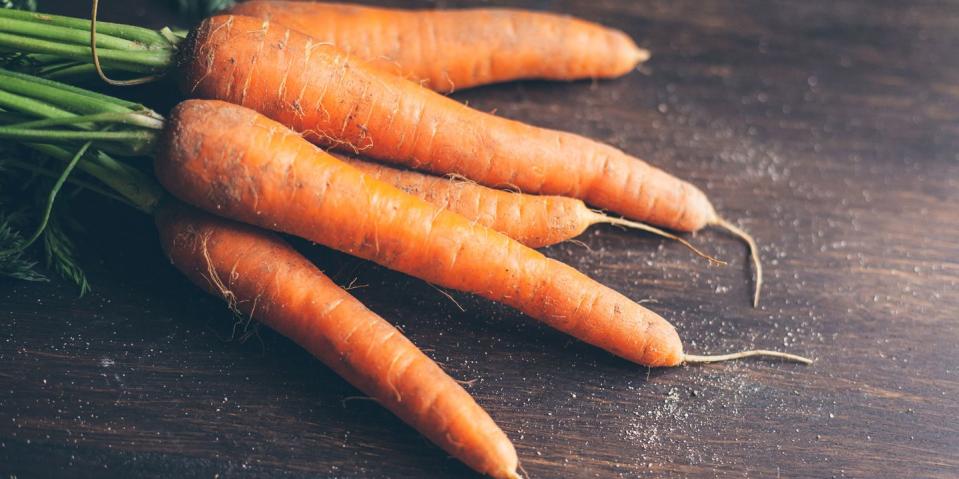
5. To boost shine: carrots
Famed for their role in keeping eyes healthy, carrots can also help to create a full head of hair. Thanks to vitamin A, these vegetables help you get that shiny, well-conditioned look by maintaining the natural oils in the hair and keeping your scalp in tip top condition.
'Foods rich in vitamin A and their precursor nutrients, carotenoids, can also help protect your hair and skin from sun damage,' says Dr Ruxton. 'Other examples include red and yellow peppers, oranges, tomatoes, apricots and spinach.'

6. To combat dryness: dark green vegetables
Dark leafy greens like spinach and broccoli contain vitamins A and C – essential nutrients when it comes to your hair because they help the body produce natural oils like sebum, which acts like a natural conditioner. 'Healthy oils, such as olive oil, avocados and flaxseed may also help', suggests Dr Ruxton.
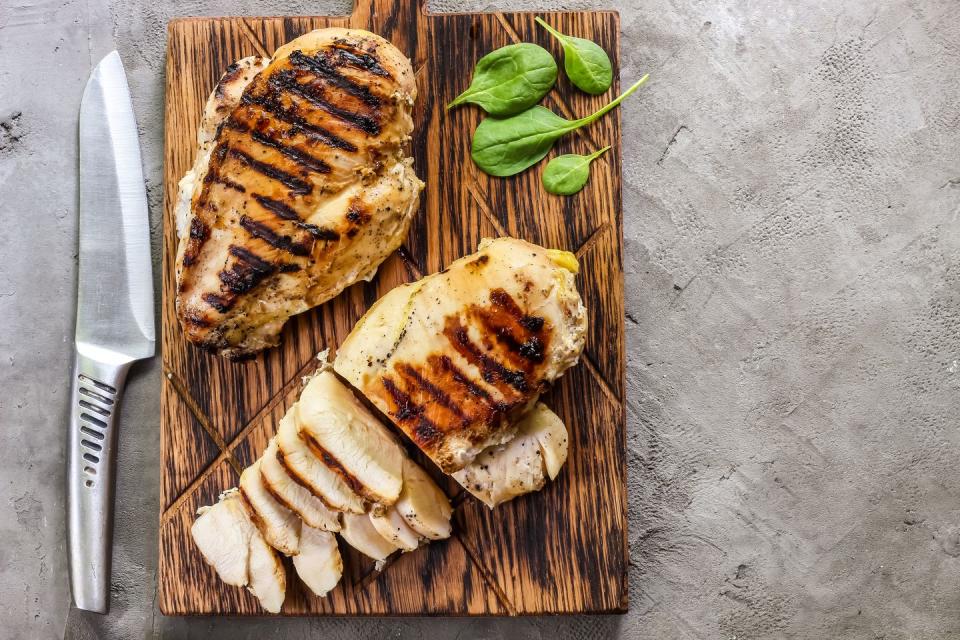
7. To treat brittle strands: poultry
Lack of protein can be a huge a problem for hair, leading to brittle strands and, in chronic or extreme cases, loss of colour. 'Chicken, turkey and eggs contain loads of protein as well as B vitamins, which is important in the maintenance of hair follicles,' says Dr Ruxton.

8. For overall hair health: beef
Full of zinc, an important mineral known for its antioxidant properties and its role in healthy hair maintenance. Lamb and (if you're feeling really swish) oysters are also a good source.
'Red meat intakes have plummeted, especially in women due to unfounded claims about the health effects,' says Dr Ruxton. 'But the evidence shows that it’s perfectly fine to eat up to 500g of lean red meat a week – that’s around five portions the size of a deck of cards.'

9. To nurture lifeless hair: bananas
Lack of vitamin B6 has been attributed to hair thinning and loss, as this important B vitamin is responsible for helping the body absorb the nutrients from food. The availability of this vitamin also has an effect on the production of red blood cells, which nurture your hair follicles, making sure they have all they need for shine and growth. 'Pork, soya beans and lamb’s liver are other good sources of vitamin B6,' says Dr Ruxton.
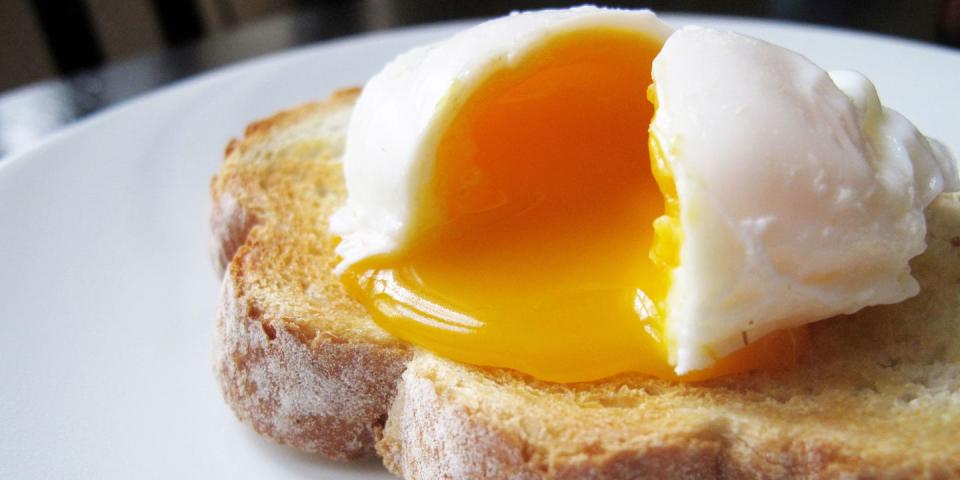
10. To create fuller hair: eggs
The vitamin, biotin – also called vitamin B7 – has been linked with healthier, fuller hair, as it is important for the structure of hair cells.
'A 2016 study found that four out of 10 women complaining of hair loss had low levels of biotin in their bodies,' says Dr Ruxton. 'Good sources of biotin include egg yolks (but eat the whole egg!), liver, nuts and seeds.'
('You Might Also Like',)


